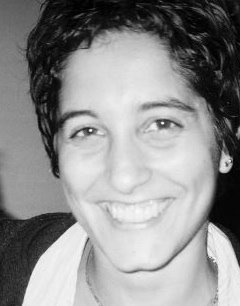Instant coffee
I walk into a fabric store in the charming little main street of Mbale, and the shop owner attempts to grasp my attention. They all do when you walk by: "Hey sista! Mzungu! Madame, I want to talk with you!" And they sincerely believe that if I'm not answering, it must be because I have not heard them yet. I can usually get away with the instincts I learned from three years of NYC catcalls and walk on by, but this time I am stuck in a dark shoebox of a shop with Jamie and Nathan. The shopowner asks me my name. I introduce myself, he introduces himself, and without missing a step, jumps straight to the point of his interpellation: "I want to marry you." Instant love. Just like that. In a five-minute shopping stop in a fabric store.
Nate, Jamie and I have arrived in Mbale, the three of us staying at the Apule Safari Lodge where the cold shower water drains straight into the toilet pit, a hole in the middle of the bathroom. The town is charming and the Indian food exquisite so you make do with the accomodations you find.
Akim offered to take us to Sippi Falls for the Ush30,000 we demanded, so we hopped into the box he claimed as vehicle. It was unclear why all the locals surrounding us as we negotiated with a myriad taxi drivers burst out in laughter, but when they gathered behind Akim's box to push it awake, and when the engine finally farted and roared in the trunk, it became clear why the three bazungu had become the laughing stock of Mbale. Ten minutes in the back seat with the windows closed and no lever to open them, with the engine grunting in the trunk, my eyes began to sting and the print of the Daily Monitor I was perusing began to blurr. The air inside Akim's car was more petrol fumes than oxygen. But somehow the box rides so you maneuver, you open the windows, and you make do with the vehicle you have.
The wounded car almost made its way to Sippi Falls, crawling up to the trailhead against all odds. Budget accomodations make for sketchier experiences and certainly for better stories after the fact. After the fact, though, is a key element to the story when you pass two checkpoints and dole out a few bills without being certain whether you just passed the Ugandan police or some private profitable informal business.
Akim's box ran out of gas about 1km from the dirt road leading up to the trailhead and about seven kilometers from the trailhead. We paid Akim in full for his efforts and made our way toward Kapkwai trailhead in Mount Elgon National Park.
The walk up was exquisitely beautiful, with colors more vivid than I have ever seen. The vegetation abounds and bursts with the darkest, richest green. The village children are not much different in their fascination with us than Kampala's children, except that they walk behind you for a kilometer or two and know a few more basic phrases such as "Give me money." We arrived at the trailhead with a fan club of three 5-7 year old boys, and they stared at us persistently as we waited for our guide. Finally, with the guards' short-wave radio blasting some of the latest American hip hop, I started dancing in the middle of rural Eastern Uganda, providing entertainment rather than money to an audience of three kids who found the scene entirely amusing and shrieked with excitement. Our guide Jimmy arrived, we wrapped up our dance party, ate some last minute sesame balls, and made our way into the park.
Trekking up to Chebonet Falls through a tropical forest was one of the most wondrous, exciting and uncomfortable hikes I've ever known. Never have I walked through more vegetation and life forms. I felt more like an intruder trekking up to the Falls than walking around in my mzungu gear through the streets of Kampala.
We arrived at the Falls, exhaustion momentarily eclipsed by excitement at what we considered to be a great feat and what Jimmy considered to be a weekend stroll in the woods. It would have been a perfect moment of satisfaction and respite had I not felt an uncomfortable, sharp sting on my stomach and my hip. I tried to brush it off but the sting persisted. Finally, I lifted my shirt to the frightening sight of an ant the size of a beetle clawing at my skin. It was a stubborn thing, and I remember feeling like that kid covered in leaches in "Stand By Me" as I freaked out and ran in circles around my guide.
We sang the "Rainbow Connectoin" all the way back down to distract ourselves from the ant ordeal, and Jimmy thoroughly enjoyed it. We hurried back to the main road, jumped on the first matatu that was willing to rip us off for a ride back to Mbale, and enjoyed a first class view of the sunset on our ride home.
That's the kind of compensation you get for the discomforts that come with budget travelling in Africa. The unsollicited and raw beauty of impromptu landscapes and sunsets.

